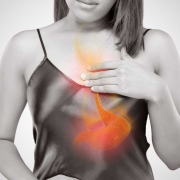Broken Heart Syndrome: When Sudden Loss or Stress (Literally) Breaks Your Heart
Have you ever suffered a broken heart?
Everyone can understand the intense pain, heartache, and distress that comes with dealing with a broken heart, especially when it’s due to a loss of a family member or dear friend. Unfortunately, these extreme stress situations can rob us of our health. We know how closely intertwined our emotional and physical states are, but can a person actually die of a broken heart?
What causes broken heart syndrome?
Stress-induced cardiomyopathy (SICM), also known as takotsubo cardiomyopathy and/or “Broken Heart Syndrome,” is a real cardiac condition triggered by extreme stress or anxiety from a traumatic event. Along with the loss of a loved one, other emotional or physical stressors like natural disasters, car accidents, sudden financial loss or gain (think lottery!), domestic violence, or even a sudden shock, could all provoke an attack.
A study published in JAMA Network Open confirmed that pandemic-related stress has caused an increase in stress-induced cardiomyopathy.
What happens when someone has broken heart syndrome?
In such cases, a rush of stress hormones causes one part of the heart to bulge, forcing the rest of the heart to work harder. As a result, the heart is unable to pump blood normally. Under these circumstances, a person will experience symptoms similar to a heart attack, like chest pain and shortness of breath, but with no signs of coronary artery disease.
Luckily for most, with treatment, the heart is able to return to its normal state. But SICM can also be fatal.
Questions? Give Us a Call!
How is broken heart syndrome treated?
Treatment for Broken Heart Syndrome/SICM typically includes medications that are used to treat heart attack victims, like beta-blockers, which relieve the excessive strain on the heart. However as research continues on SICM it questions whether this form of treatment is actually effective, as this study published in the New England Journal of Medicine concluded: “Although it has been proposed that beta-blockers might prevent takotsubo cardiomyopathy events, the condition developed in 32.5% of the patients in our study while they were taking these agents. Of 57 patients with recurrent takotsubo cardiomyopathy, 29 were taking beta-blockers at the time of the second event. These data suggest that beta-blockers are not effective in preventing takotsubo cardiomyopathy.”
Another study, published in the American Journal of Cardiology, led by Dr. Harmony Reynolds of NYU Langone Medical Center, looked at the parasympathetic nervous system (responsible for helping the body calm down) as a major player in SICM and proposed that treatments such as meditation, yoga, and breathing exercises, may be beneficial in preventing attacks by strengthening the mind-body relationship.
Dr. Reynolds’ research also aims at explaining why as much as 90% of patients diagnosed with SICM are post-menopausal women. Some suspect that the reason for this may be the loss of estrogen during menopause (estrogen is cardio-protective in that it improves blood flow to the heart; as levels drop one’s risk for a cardiac event increases).
And while Broken Heart Syndrome is relatively rare in the big picture, only counting for 1-2% of patients with heart attack symptoms, the pain you feel after suffering a loss can also cause other negative health effects. Not getting enough sleep or proper nutrition (both common occurrences while coping with a loss or stressful situations), can suppress your immune system, and put you at a greater risk for developing other illnesses.
While there is no way to predict how your body will react to a traumatic event, there are things you can do to put yourself in the best position for coping with stress and recovering from a cardiac event.
1) Know the signs and symptoms of a cardiac event.
Heart disease is one of the leading causes of death for men and the #1 cause of death for women in the United States. Typical symptoms include chest pain or discomfort, dizziness, shortness of breath, breaking out into a cold sweat, and/or heart palpitations. Women may present different signs and symptoms than men, like abdominal pain or nausea, shortness of breath with or without chest pain, back, neck, jaw, and arm pain.
While there may be no warning for sudden cardiac arrest, anyone experiencing any of the symptoms above should call 911 immediately.
2) Take care of yourself.
This includes eating a healthy, anti-inflammatory diet and maintaining a regular sleep schedule. If you are having difficulty falling or staying asleep don’t put off talking to your physician. A healthy sleep pattern is absolutely essential for good health. If you are a smoker, quit.
3) Keep up with a regular exercise routine.
Physical activity is anything that gets you moving. If you have never engaged in regular exercise start with a simple and easy to keep walking routine. However, try not to work out when stress or emotions are running high; a study of over 12,000 people showed that heavy exercise while angry or emotionally stressed tripled the incidence of a heart attack.
4) Take up a mind-body therapy.
Meditation, yoga, and breathing practices, such as Pranayama, can prompt a cascade of physiological effects including decreases in blood pressure, stress, and heart rate, and increases in immune function, mood, and vitality.
5) Talk with a therapist or grief counselor.
Speaking with a professional can help you navigate the more complex emotions surrounding the loss of a friend or family member, or coping with a current or past trauma.
6) Speak with a doctor about your health concerns
Even if you’re not sure if your symptoms are related to your emotional state keeping your doctor informed is extremely important, particularly if you suffer from any chronic medical conditions.
We are here for you, and we want to help.
Our goal is to return you to optimal health as soon as possible. To schedule an appointment please call: 703-532-4892 x2









Leave a Reply
Want to join the discussion?Feel free to contribute!